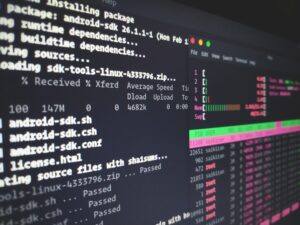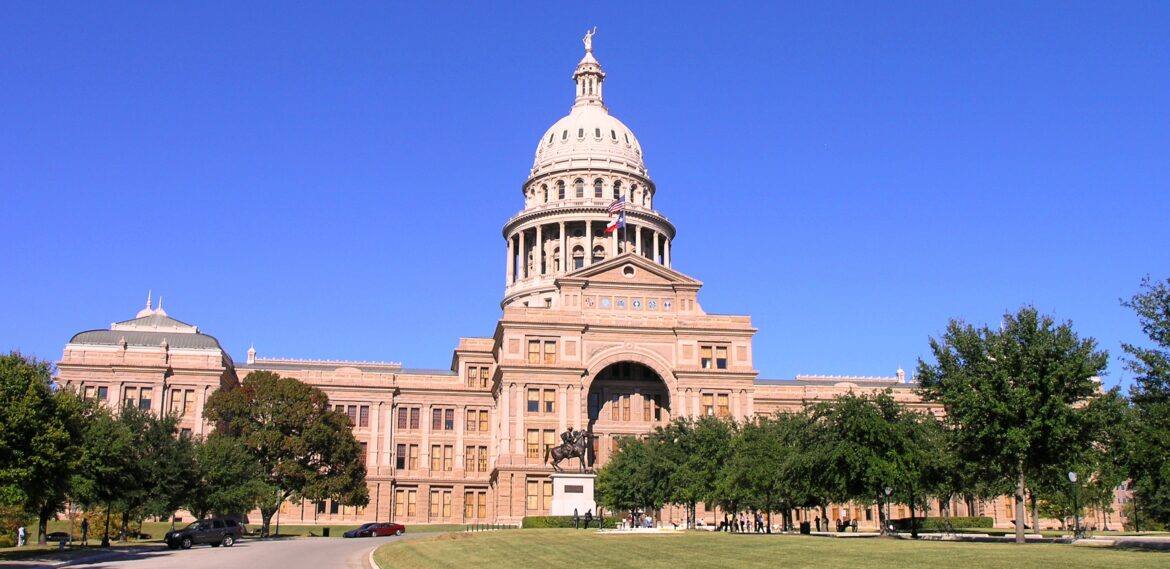All good things must come to an end, but only someone who loves politics would consider the legislative process a good thing. I’m one of those people. I love every minute of it, even the ones that go past midnight! Looking back over the past four months, I am happy to report that TCEA was able to move our vision of education forward through legislation and have some promising opportunities to help shape the future of Texas schools. I have created a 2019 Bill Analysis document that include the specifics about the bills that will impact digital education, but below is a quick summary of the more important bills.
Computer Science and Coding
 We had some huge wins in the area of computer science and computational thinking this session. Our six-year goal of providing weighted funding for the 9-12 Technology Application courses has finally been achieved. In HB 3, the school finance legislation, the weighted funding for CTE was changed from grades nine through twelve to grades seven through twelve. In addition, the bill specified that CTE courses and programs include Technology Application courses. This means that Technology Application courses from grades seven through twelve will receive the same weighted funding as CTE courses, which is 1.35 (instead of the normal 1). HB 963 requires the SBOE to consolidate the 9-12 Technology Application courses with similar courses found in the CTE curriculum. The goal is to eliminate duplicates and identify the purpose of each of the courses. Finally, HB 2984 requires the SBOE to update the K-8 Technology Application standards to ensure that they include coding, computer programming, computational thinking, and cybersecurity. It also establishes a committee to create a strategic plan for K-12 CS education to increase computer science instruction and participation in public schools.
We had some huge wins in the area of computer science and computational thinking this session. Our six-year goal of providing weighted funding for the 9-12 Technology Application courses has finally been achieved. In HB 3, the school finance legislation, the weighted funding for CTE was changed from grades nine through twelve to grades seven through twelve. In addition, the bill specified that CTE courses and programs include Technology Application courses. This means that Technology Application courses from grades seven through twelve will receive the same weighted funding as CTE courses, which is 1.35 (instead of the normal 1). HB 963 requires the SBOE to consolidate the 9-12 Technology Application courses with similar courses found in the CTE curriculum. The goal is to eliminate duplicates and identify the purpose of each of the courses. Finally, HB 2984 requires the SBOE to update the K-8 Technology Application standards to ensure that they include coding, computer programming, computational thinking, and cybersecurity. It also establishes a committee to create a strategic plan for K-12 CS education to increase computer science instruction and participation in public schools.
Broadband
 There are two pieces of legislation that are going to impact educational broadband. The first is HB 1960 which creates a Governor’s Broadband Council that will advise the governor on issues related to broadband access to unserved areas. This is progress, but not as much as we hoped for. There are few, if any, areas of Texas that are unserved. The original bill included underserved areas, but heavy lobbying by the large telecommunication companies eliminated that language from the bill. However, we consider this progress because we finally have some entity at the state level that will look at the state’s needs for broadband from a strategic perspective. For too long, all state entities have tried to provide affordable, scalable broadband for their own purposes when it would be much more cost efficient to survey the needs across agencies and entities and design a plan to meet all the needs. HB 1960 at least establishes a council that could do this in the future, if given the authority.
There are two pieces of legislation that are going to impact educational broadband. The first is HB 1960 which creates a Governor’s Broadband Council that will advise the governor on issues related to broadband access to unserved areas. This is progress, but not as much as we hoped for. There are few, if any, areas of Texas that are unserved. The original bill included underserved areas, but heavy lobbying by the large telecommunication companies eliminated that language from the bill. However, we consider this progress because we finally have some entity at the state level that will look at the state’s needs for broadband from a strategic perspective. For too long, all state entities have tried to provide affordable, scalable broadband for their own purposes when it would be much more cost efficient to survey the needs across agencies and entities and design a plan to meet all the needs. HB 1960 at least establishes a council that could do this in the future, if given the authority.
The second bill that may help with broadband is HB 3906. This is an assessment bill that requires online testing by 2022-2023. The bill requires TEA to evaluate the availability of Internet access for each school district and identify changes to state law or policy that are necessary to improve the availability of Internet access. This may open a door for more aggressive action in parts of the state that are “served” but are underserved.
Digital Learning
HB 3 established a Blended Learning Grant program and then funded it at $6 million a year. TEA’s Math Innovation Zones are how the agency is fulfilling this requirement. It is good to know that the agency has funding to continue these types of grants.

I have already mentioned that HB 3906 requires TEA and the SBOE to implement online testing by 2022-2023. Before this can happen TEA and the SBOE must devise an implementation plan that is approved by the legislature. The planning for this type of implementation will require heavy district input, which will largely come from their technology departments. This has the potential to finally focus some much needed light on what the state must do in order ensure that all students have access to technology, not just for assessment, but for learning throughout the year. In order for students to be successful on an online assessment, they must first be technically proficient and familiar with the type of device they will be using when taking the assessment. This translates to more access to digital tools for all students.
Funding
HB 1 is the budget bill for the 2020-2021 biennium. Listed below are some of the appropriations that were made that will impact digital education:
- Technology and Instructional Materials Allotment – $1,101,430,204
- OER curation – $20,000,000
- Blended learning teacher training – $2,000,000
- Blended learning grants – $12,000,000
- TxVSN administration – $800,000
HB 396 allows districts to use their TIMA on software that will help manage instructional resources, including the usage and effectiveness of digital materials. HB 4611 stipulates that 50% of the funds that the Texas General Land Office sends to the legislature for education must be appropriated to the TIMA. If this had been in place this biennium, there would have been $3 million more placed in the TIMA. In addition, the budget stipulates that the SBOE should restrict instructional material proclamations to 75% of the TIMA and should consider school district’s technology needs when determining the size of the percentage of the Permanent School Fund sent to the legislature. 50% of this distribution goes into the TIMA. In translation, this means the SBOE should be sending the legislature enough money from the PSF to fund both the instructional material needs of school districts and also their technology needs.
Cybersecurity
SB 820 requires each school district to establish a cybersecurity policy that determines the cybersecurity risks to the district and a plan to mitigate those risks. The district will also be required to designate a cybersecurity officer who will oversee the policy. In addition, the district will be required to report to TEA any cyber attack that breaches the system security and notify the parents of the students whose information has been compromised.
Professional Development
 There are several opportunities in the bills mentioned above that will provide professional development in digital learning. The Blended Learning Grants are largely designed to provide professional development for educators in blended learning, not to mention the funding provided to UTeach to continue to provide this type of training to Texas teachers. Also, this is a good chance to remind districts that the TIMA may be used to provide professional development on the use of technology. In addition to these bills, the legislature passed HB 2424 that requires the SBEC to establish rules to create microcredentials in fields of study related to an educator certification class. This was one of TCEA’s legislative priorities, so we are excited to see this bill pass.
There are several opportunities in the bills mentioned above that will provide professional development in digital learning. The Blended Learning Grants are largely designed to provide professional development for educators in blended learning, not to mention the funding provided to UTeach to continue to provide this type of training to Texas teachers. Also, this is a good chance to remind districts that the TIMA may be used to provide professional development on the use of technology. In addition to these bills, the legislature passed HB 2424 that requires the SBEC to establish rules to create microcredentials in fields of study related to an educator certification class. This was one of TCEA’s legislative priorities, so we are excited to see this bill pass.
What’s Next
The legislative session has come to an end, but the hardest work is ahead of us. Enacting legislation is the first step in changing things. Now we begin the process of working with the different agencies and entities to ensure they are enacted well. Stay tuned for more blogs about many of these legislative initiatives and how you can provide input.
Credits
Photo of the computer code taken by Sai Kiran Anagani on Unsplash. Photo of cables taken by Jordan Harrison on Unsplash. Photo of teacher interacting with students taken by Mimi Thian on Unsplash Photo of teachers taken by Kylie Haulk on Unsplash.

